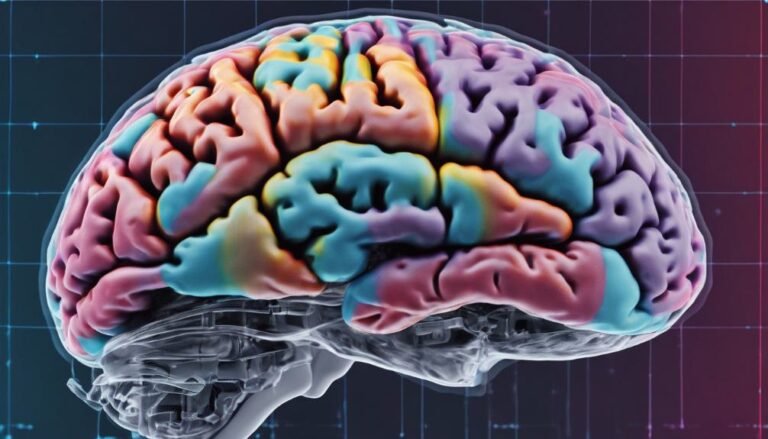AI and Patient Privacy
When considering the intersection of AI and patient privacy in healthcare, one must acknowledge the delicate balance required to navigate this complex landscape. The advancements in AI have the potential to revolutionize medical care, but at what cost to patient confidentiality? As technology continues to evolve, the ethical implications surrounding data protection become increasingly paramount. How can we guarantee that the benefits of AI are maximized without compromising the privacy rights of individuals? The answers lie in a nuanced exploration of transparency, consent, and security measures within the healthcare AI ecosystem.
Key Takeaways
- Implement robust data protection measures in AI systems.
- Adhere to privacy regulations like HIPAA and GDPR.
- Ensure transparency in AI algorithms for patient trust.
- Secure patient consent before data collection.
- Conduct privacy impact assessments to mitigate risks.
Importance of Patient Data Protection
Ensuring the protection of patient data is an essential aspect of maintaining ethical standards and regulatory compliance within the healthcare industry. Data ownership plays a pivotal role in establishing trust between patients and healthcare providers. Patients expect their sensitive information to be safeguarded and used only for their benefit.
Privacy regulations, such as the Health Insurance Portability and Accountability Act (HIPAA), set strict guidelines for how patient data should be handled, emphasizing the importance of data security and confidentiality.
Data sharing must be approached cautiously to preserve patient trust. Healthcare organizations need to strike a balance between utilizing data for improving patient care and respecting individual privacy rights. Transparent policies regarding data collection, storage, and sharing help build trust with patients.
Ethical Considerations in AI Implementation
As you consider the implementation of AI in healthcare, ethical considerations surrounding privacy and data ethics must be at the forefront of your decision-making process.
Ensuring that patient information is protected and used ethically is vital for maintaining trust and complying with regulations.
Striking a balance between utilizing AI to improve patient care and safeguarding sensitive data requires a meticulous approach guided by ethical principles.
Privacy in AI
Addressing patient privacy concerns in the implementation of AI involves establishing robust data protection measures and ensuring compliance with ethical guidelines. AI regulations play an important role in shaping how healthcare organizations handle patient data. These regulations set the framework for the ethical use of AI in healthcare settings, ensuring that patient privacy is upheld throughout the process.
Privacy safeguards are essential components of AI implementation to maintain patient trust and confidentiality. Implementing encryption techniques, access controls, and anonymization processes are key aspects of safeguarding patient privacy. By adhering to these privacy safeguards, healthcare providers can mitigate the risks associated with AI data processing and storage.
Moreover, transparency in AI algorithms and data processing is essential for maintaining patient privacy. Healthcare organizations must provide clear information on how AI systems operate and how patient data is utilized to ensure transparency and build trust with patients.
Data Ethics
Implementing robust data ethics principles in AI healthcare systems is vital to guarantee the ethical use of patient data and uphold privacy standards. Data ownership and ethical guidelines play a significant role in ensuring that patient information is handled with the utmost care and responsibility.
It's imperative to establish clear protocols regarding who owns the data, how it's stored, and who has access to it to maintain transparency and trust in the system.
Cybersecurity is another essential aspect when considering data ethics in AI implementation. Safeguards must be in place to protect patient information from breaches and unauthorized access. Adhering to strict cybersecurity measures not only preserves patient rights but also safeguards sensitive data from potential threats.
Risks of Data Breaches in Healthcare
Data breaches in healthcare pose significant risks to patient privacy and confidentiality, necessitating stringent security measures to safeguard sensitive information. In the healthcare industry, data breaches can lead to the compromise of personal medical records, putting patient trust at risk. Cybersecurity measures are essential to prevent unauthorized access to sensitive data and mitigate the impact of potential breaches.
Maintaining patient trust is vital in healthcare. Data breaches not only violate regulatory compliance but also have ethical implications, as they expose individuals to identity theft and other forms of fraud. The healthcare industry must prioritize cybersecurity measures such as encryption, access controls, and regular security audits to protect patient data effectively.
Data breaches in healthcare highlight the importance of implementing robust security protocols to prevent unauthorized access to patient information. By prioritizing data security, healthcare organizations can uphold patient confidentiality and trust, ensuring that sensitive information remains protected from cyber threats.
Legal Frameworks for Patient Privacy
Adherence to established legal frameworks is essential to guarantee patient privacy is protected within the healthcare sector. International regulations, patient confidentiality, data ownership, and privacy laws play a vital role in safeguarding sensitive patient information.
International regulations like the General Data Protection Regulation (GDPR) in the European Union set stringent guidelines for the collection, processing, and storage of patient data to uphold confidentiality.
Patient confidentiality is a cornerstone of ethical medical practice, and healthcare providers must comply with strict laws to maintain trust with their patients.
Data ownership is another critical aspect that determines who's control over patient information and how it can be used.
Privacy laws govern the access, use, and sharing of patient data, outlining the rights and responsibilities of healthcare organizations in protecting this information.
Transparent AI Algorithms in Healthcare
Promoting transparency in AI algorithms used in healthcare is crucial for upholding regulatory compliance and ethical standards in handling patient data. Algorithm transparency is essential for establishing healthcare trustworthiness. Transparent AI algorithms enable healthcare providers to comprehend how decisions are made, ensuring that patient data is utilized ethically and lawfully.
By offering clear insights into the inner workings of AI systems, algorithm transparency empowers healthcare professionals to validate the outputs and establish trust with patients regarding the use of their data. In the healthcare sector, transparent AI algorithms aid in identifying biases, errors, or misinterpretations that could influence patient outcomes. This transparency encourages accountability and facilitates ongoing enhancement in AI systems.
It also assists in adhering to regulations such as the General Data Protection Regulation (GDPR) and the Health Insurance Portability and Accountability Act (HIPAA), safeguarding patient privacy and confidentiality. Prioritizing algorithm transparency not only boosts the credibility of AI applications in healthcare but also ensures that patient data is managed responsibly and ethically.
Balancing Data Utility and Privacy
Balancing the fine line between maximizing the usefulness of data and safeguarding patient privacy presents a critical challenge in the field of healthcare AI algorithms. When considering data sharing, privacy implications must be carefully weighed.
The sharing of patient data among healthcare providers, researchers, and AI systems can greatly enhance treatment outcomes and medical advancements. However, this practice raises significant privacy concerns as sensitive information is disseminated.
Moreover, the utilization of data mining techniques in healthcare AI algorithms is essential for extracting valuable insights and patterns. Nevertheless, the extensive collection and analysis of patient data through data mining methods can pose risks to individual privacy. It's essential for organizations developing AI solutions to implement robust privacy protection measures to mitigate these concerns.
Striking a balance between extracting valuable insights from data and upholding patient privacy rights is fundamental to the ethical and regulatory compliance of healthcare AI algorithms. By prioritizing both data utility and privacy, the healthcare industry can harness the power of AI while maintaining patient confidentiality and trust.
Patient Consent and Data Collection
Securing patient consent prior to data collection is a paramount ethical consideration in healthcare AI algorithms. Informed consent is vital to guarantee that patients understand how their data will be used to develop AI technologies.
When it comes to digital consent, healthcare organizations must implement clear policies outlining what data will be collected, how it will be stored, and who'll have access to it. Patients should have the right to opt-in or opt-out of data collection processes, empowering them to make informed decisions about their privacy.
Healthcare providers must also ensure that patient consent is obtained in a transparent and easily understandable manner, especially when dealing with sensitive medical information. Implementing robust consent management processes helps uphold regulatory compliance and ethical standards in AI-driven healthcare systems.
Ensuring Data Security in AI Systems
To uphold data security in AI systems, it's imperative to implement robust data encryption methods, ensuring that sensitive patient information remains protected from unauthorized access.
Access control measures should be strictly enforced to regulate who can view or modify the data, minimizing the risk of breaches or misuse.
Conducting regular privacy impact assessments can further strengthen the system's security measures, identifying potential vulnerabilities and areas for improvement to uphold ethical standards and regulatory compliance.
Data Encryption Methods
Implementing resilient data encryption methods is essential in AI systems to safeguard the security and privacy of patient information. Secure encryption techniques play a pivotal role in protecting sensitive data stored within AI systems.
By encrypting patient data both at rest and during transmission, healthcare organizations can mitigate the risk of unauthorized access or breaches.
When it comes to data storage, employing robust encryption algorithms ensures that patient information remains secure even if the system is compromised. Advanced encryption standards like AES (Advanced Encryption Standard) provide a high level of protection against cyber threats and unauthorized data breaches.
Additionally, implementing encryption key management practices is crucial to control access to encrypted data effectively.
Regulatory bodies like HIPAA mandate the use of encryption to protect patient information, emphasizing the importance of data security in healthcare AI systems. By adhering to secure encryption protocols and best practices, healthcare providers demonstrate their commitment to maintaining patient privacy and confidentiality.
Access Control Measures
Effective access control measures are essential for ensuring the data security of AI systems in healthcare settings. Access control refers to the process of regulating who can view or use certain information within a system.
In the context of AI and patient privacy, implementing robust access control mechanisms is critical to prevent unauthorized access to sensitive data.
Access control measures involve setting up user authentication processes, role-based access controls, and encryption protocols to safeguard patient information. User authentication ensures that only authorized personnel can access the AI system, while role-based access control limits individuals to specific functions based on their roles within the healthcare organization.
Encryption plays an important role in securing data both at rest and in transit, adding an extra layer of protection against potential breaches.
Privacy Impact Assessments
Conducting thorough privacy impact assessments is an essential step in ensuring the data security of AI systems in healthcare environments.
These assessments involve a detailed risk assessment to identify potential privacy risks associated with the use of AI technology in handling patient data.
Stakeholder engagement plays a pivotal role in this process, ensuring that all parties involved understand the implications and are aligned on the measures to mitigate risks effectively.
Conclusion
As you navigate the complex landscape of AI in healthcare, remember to prioritize patient privacy like a vigilant guardian of medical data.
By maintaining strict data protection measures, transparent algorithms, and legal frameworks, you can guarantee a secure and ethical healthcare ecosystem.
Striking a balance between data utility and privacy, obtaining patient consent, and safeguarding data security are essential steps in harnessing the power of AI while upholding trust and compliance in the ever-evolving healthcare industry.







